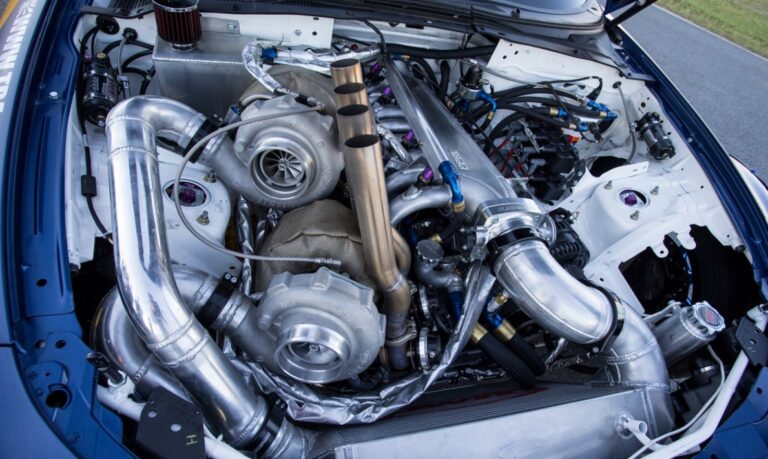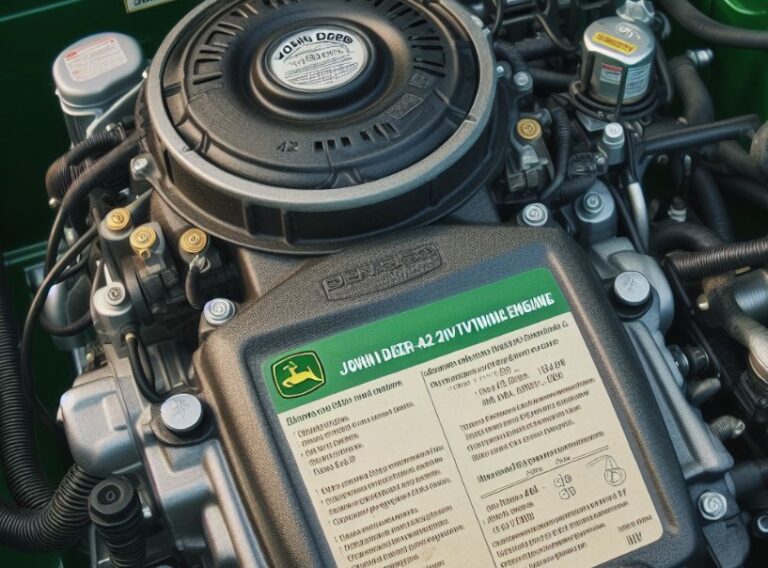Can ABS Cause Hard Brake Pedal? Quick Answer
In this article, I’ll discuss Can ABS Cause Hard Brake Pedal? The brake pedal, which enables the driver to slow down or stop the car, is a crucial component of a car’s braking system.
However, drivers occasionally may find a firm brake pedal challenging to press down.
This may damage the vehicle’s safety and stopping power, which is a cause for concern.
Can ABS Cause Hard Brake Pedal?
Another factor in a hard brake pedal is an Anti-lock Braking System (ABS) that isn’t working properly.
The ABS is in charge of avoiding wheel locking when applying emergency braking. A harsh brake pedal may occur from an ABS malfunction if there is a lack of hydraulic pressure.

How Does A Brake Booster Function?
Through a two-way valve inside the brake booster, the engine draws a vacuum on both sides of the diaphragm(s) when the brake booster is at rest.
The diaphragms stay still as a result of the booster becoming balanced. At this point, the booster body functions as an engine vacuum reservoir—the two-way valve inside the booster moves in tandem with the pedal when the brake pedal is depressed.

The valve shuts off the vacuum draw at the back of the diaphragm, allowing air pressure to enter the booster’s back while the engine vacuum only pulls at the front.
As a result, the engine vacuum pulls the front diaphragm forward, pushing the rearward diaphragm forward. This forward push applies to the brakes as the internal pushrod is coupled through the diaphragms.
Why Does It Matter?
When the two-way valve opens, there is no way for the diaphragm to move if the engine vacuum pulling on the booster’s diaphragms is less than atmospheric pressure because there is not enough pressure difference between the front and rear to cause the diaphragms to move.
Your foot then serves as a tool for applying enough force to the pedal to cause the diaphragms to move.
We always advise applying a vacuum of at least 18″ to the booster to take things a step further and make it easier to understand through numbers.
At sea level, the atmospheric pressure is roughly 14.70 pounds per square inch. The engine’s front-facing vacuum must be greater than the rear-facing atmosphere’s.
As you could expect, if the pedal operates, it will be harder the closer they are.
Why Is My Brake Pedal Hard To Push Down?
Low Brake Fluid Level
Low brake fluid levels are among the most frequent causes of a harsh brake pedal. The brake calipers receive force from the brake pedal and pass it to the brake fluid, which pushes against the brake pads to slow the car down.
Low brake fluid levels will result in a harsh brake pedal because there won’t be enough hydraulic pressure to activate the brakes effectively.
In case the level is low, add more liquid. If the brake fluid level is low, a brake system leak may need to be fixed immediately.
Failed Brake Booster
A bad brake booster might also bring a harsh brake pedal on. The brake booster’s job is to increase the force transmitted from the brake pedal to the brake system, making it simpler to apply the brakes.
A harsh brake pedal will ensue if the brake booster malfunctions since it cannot enhance the force from the brake pedal.
Turn off the engine and repeatedly pump the brake pedal to relieve any vacuum pressure if the brake pedal feels stiff.
After a few pumps, the brake pedal may feel softer, which indicates that the brake booster may be the issue.
Worn Brake Pads Or Rotors
Worn brake pads or rotors may also cause a harsh brake pedal. A harsh brake pedal might arise from a lack of hydraulic pressure from worn brake pads or rotors.
To regain hydraulic pressure in the brake system, the brake pads & rotors must be replaced.
Air In The Brake Lines
Air in the brake lines can also bring a harsh brake pedal. The brake fluid won’t flow smoothly if air is in the brake lines, resulting in a loss of hydraulic pressure and a stiff brake pedal.
Removing air from the brake lines bleeding the brakes can help restore the brake system’s hydraulic pressure.
Frozen Brake Calipers
Frozen brake calipers may also bring a harsh brake pedal on. The brake calipers and brake pads are in contact, and the brake rotors subsequently come into contact with the brake pads to slow the car down.
The brake pedal will feel stiff if the brake calipers freeze since they won’t be able to squeeze the brake pads. Water or moisture in the brake system is frequently to blame for frozen brake calipers.
The braking fluid in the brake calipers may freeze in the presence of moisture, rendering them inoperable.
Take your car to a licensed mechanic for a more thorough diagnostic and repair if you think your brake calipers may be frozen.
Damaged Brake Hoses
A harsh brake pedal may also be the result of damaged brake pipes. The hydraulic pressure from the brake lines is transferred to the brake calipers through brake hoses.
The brake hoses may collapse if they sustain damage or deterioration, preventing the hydraulic pressure from reaching the brake calipers and producing a stiff brake pedal.
Take your car to a licensed mechanic for a more thorough diagnostic and repair if your brake hoses are broken.
Worn Out Brake Shoes
Worn-out brake shoes might also bring a harsh brake pedal on. Drum brake systems slow down the vehicle by applying pressure to the drums through brake shoes.
A harsh brake pedal will come from worn-out brake shoes that cannot adequately press on the drums. Take your car to a qualified mechanic for a more thorough evaluation and repair if you suspect worn-out brake shoes.
Faulty Brake Master Cylinder
A malfunctioning brake master cylinder may also cause a harsh brake pedal. The force from the brake pedal is transformed into hydraulic pressure and sent to the brake calipers by the brake master cylinder.
A firm brake pedal could come from the brake master cylinder’s inability to produce enough hydraulic pressure to actuate the brakes.
Press the brake pedal repeatedly while the motor is running to identify a broken brake master cylinder.
The brake master cylinder may be to blame if the brake pedal is stiff and does not become any softer after a few pumps.
Contaminated Brake Fluid
Because brake fluid is hygroscopic, it gradually collects moisture from its surroundings. The corrosion of the braking system brought on by moisture in the brake fluid might result in a loss of hydraulic pressure and a stiff brake pedal.
Additionally, dirt or debris in the brake fluid can clog the braking lines and make the brake pedal feel harsh.
Replace the brake fluid every two years or as the manufacturer directs to avoid having a harsh brake pedal due to contaminated brake fluid.
Worn Out Brake Drums
Worn-out brake drums might also bring a harsh brake pedal on. The friction that is created between the brake shoes and the brake drums is what slows the car down.
A harsh brake pedal could come from the drums not producing enough friction if worn out. You are advised to get the brake drums inspected and repaired by a qualified mechanic regularly to prevent worn-out brake drums.
Brake Fade
A harsh brake pedal might also be brought on by brake fade. Brake fade is the phrase used to describe when brakes become less effective due to overheating.
A firm brake pedal may arise from overheated brakes that cannot produce enough friction to slow the car down. It is advised that you steer clear of hard braking and allow the brakes to cool down between extended uses to prevent brake fade.
Conclusion
ABS can cause hard brake pedal. Drivers may be concerned about a hard brake pedal since it may compromise the vehicle’s safety and stopping power.
Low brake fluid, worn brake pads and rotors, a malfunctioning brake booster, clogged brake lines, air in the brake lines, a bad master cylinder, and other factors can all contribute to a harsh brake pedal.
The underlying reason for a hard brake pedal must be addressed to resolve it, which may entail replacing worn-out or defective brake system parts.
Drivers can determine the root cause of a hard brake pedal and take the appropriate remedial action by understanding the functions of the various parts that make up the braking system.
Frequent maintenance is necessary to ensure the brake system is working properly and to guarantee your safety on the road.
Frequently Asked Questions
Does ABS affect the brake pedal?
It will eventually stop, although it might not do so directly or in the middle of the lane. The high-frequency brake pressure modulation control causes the “grating” or scratchy feedback through the brake pedal when ABS is activated during severe braking.
Does ABS affect brake pressure?
Through the sensor (A) in this wheel, the ABS control module (B) recognizes the beginning of a skid. In response, it quickly opens a pressure release valve (C) to release a small amount of braking pressure.
How does the brake pedal feel when ABS is active?
When ABS functions effectively, the motorist may experience a sharp decrease in the brake pedal and a rapid pulsating sensation. When ABS is engaged, a grinding or buzzing sound could emanate from the car. When ABS engages, it could feel like the brake pedal is being pushed back.
Does ABS make the brake pedal pulsate?
It’s likely that the pulsating brake pedal you occasionally feel during “panic” stops or when driving in the rain is simply typical ABS action. If there is a problem, a brake inspection service should let you know.

Welcome to the exhilarating world of Matt Rex, a professional car racer turned renowned vehicle enthusiast. Immerse yourself in his captivating blog as he shares heart-pounding adventures, expert reviews, and valuable insights on cars, trucks, jets, and more. Fuel your passion for speed and discover the beauty of vehicles through Matt’s engaging stories and meticulous expertise. Join the ever-growing community of enthusiasts who find inspiration and expert advice in Matt Rex’s blog—a digital hub where the thrill of speed meets the pursuit of knowledge.




![Can Humidity Cause Check Engine Light To Come On? [Answered]](https://www.turbochaos.com/wp-content/uploads/2023/11/Can-Humidity-Cause-Check-Engine-Light-To-Come-On-768x427.jpg)


